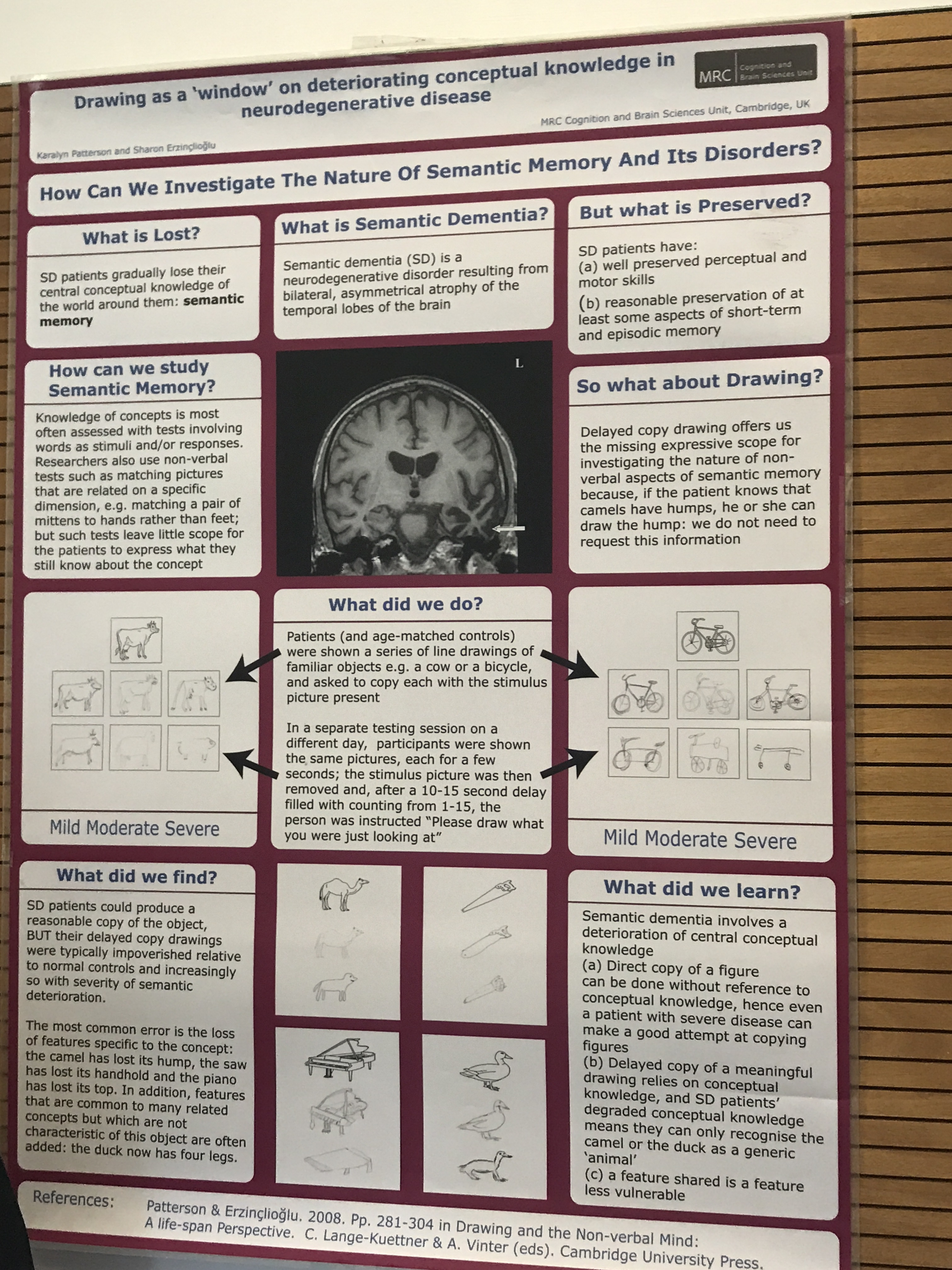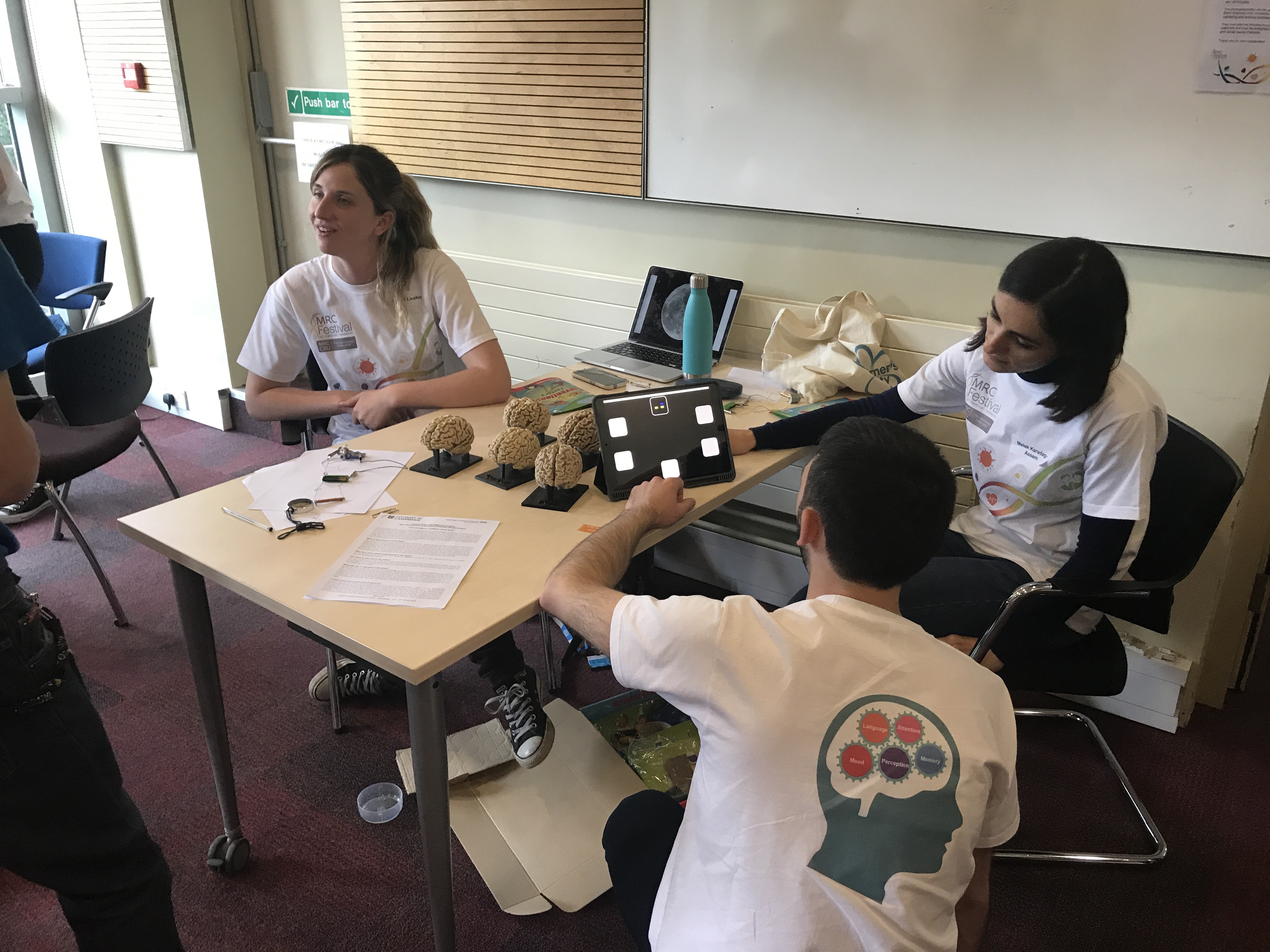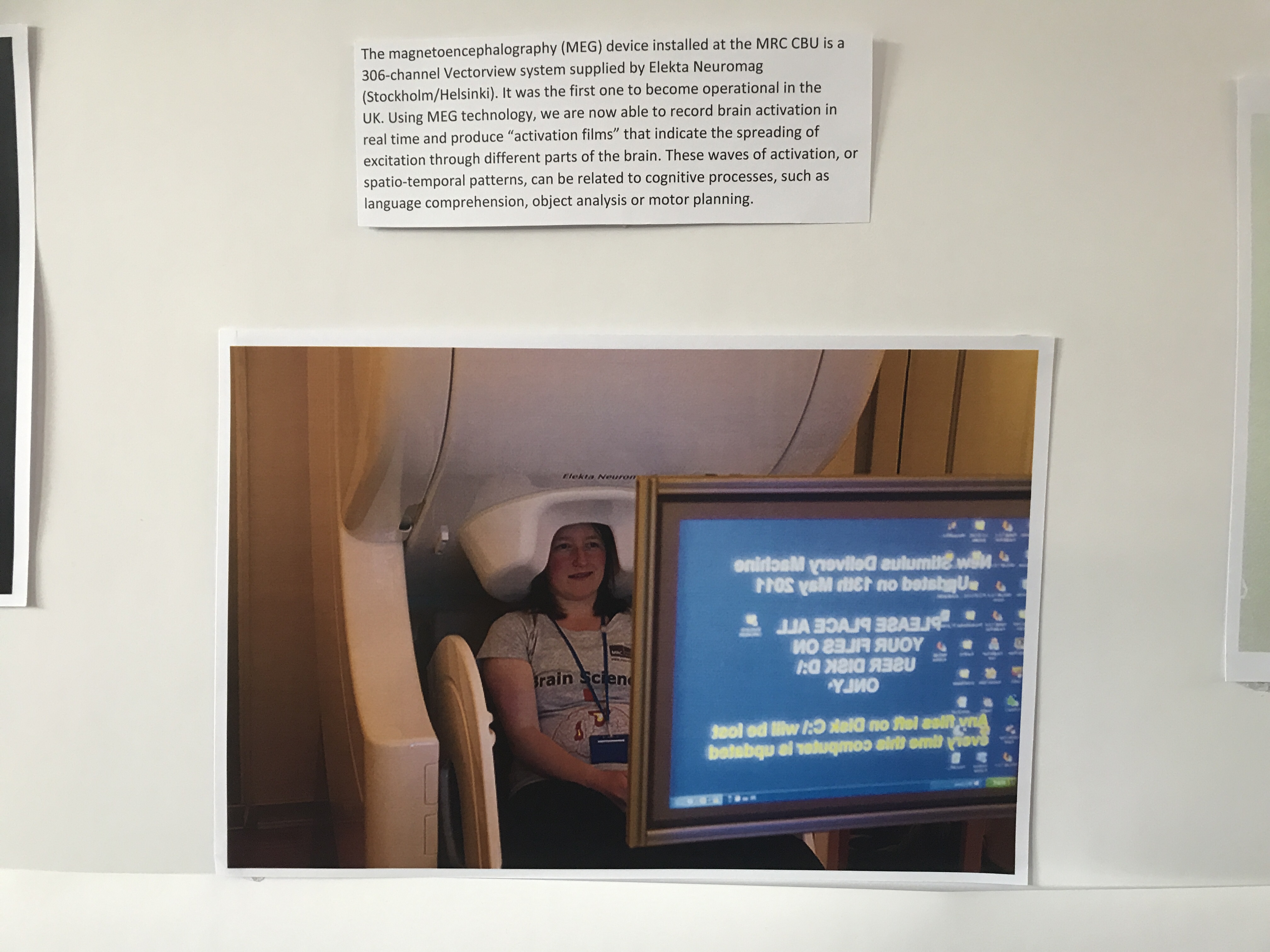The Cognition an Brain Science Unit at the University of Cambridge is using cognitive theory and innovations in neuroscience to understand and improve mental wellbeing across the lifespan.
The Unit organised an exciting festival of medical research for volunteers and supporters.
I was able to visit their MRI and MEG sections. I tried a virtual reality game for early diagnostics of Parkinson’s disease (luckily good news for me 😉). It was exciting to talk to the researchers about their most recent projects.
Very interesting research is going on in areas of
– language (how our brain is able to fill up gaps and the difference between filling gaps with language versus filling up gaps in drawing
– artificial intelligence (creating a model of the brain using AI, then damaging certain areas and studying what happens)
– Alzheimer disease research (creating 3D models of brain damage and trying to establish how to slow down progression using drugs)
Dr Darren Dunning presented a talk “Can mindfulness training improve adolescent mental health?” His team first did a meta analysis study to establish the efficacy of mindfulness-based interventions (MBIs) for children and adolescents in studies that have adopted a randomized, controlled trial design. Indeed, the meta-analysis “reinforced the efficacy of using MBIs for improving the mental health and wellbeing of youth”.
The team then involved a large amount of teenagers in a comparative study. They are now awaiting data analysis that is being performed by an independent team who don’t know which results are from which group to avoid bias. The team is hoping to secure £7M funding for a longitudinal study.
Incidentally, his talk was the day after The Guardian published “The mindfulness conspiracy”. This article puts in doubt the role of mindfulness in relation to social engagement.
But many studies have indicated that mindfulness-based interventions may be a useful tool in dealing with many issues such as stress, mental and physical health issues, addictions, grief, pain, in pregnancy and many others. As always, more research is needed. Hopefully, Professor Dunning will secure the necessary funding to provide more substantial evidence!
NEUROTIP: Have a brief mindful moment: close your eyes and take one mindful breath. This means you REALLY notice that you are breathing. Feel the formless stream of air at the tip of your nose and let thoughts and sounds pass without evaluation. Notice how this brief mindful moment affects your mood and perception of the world. Return to your activities or continue breathing mindfully as long as it feels good.
References
Dunning, D. L., Griffiths, K. , Kuyken, W. , Crane, C. , Foulkes, L. , Parker, J. and Dalgleish, T. (2019), Research Review: The effects of mindfulness‐based interventions on cognition and mental health in children and adolescents – a meta‐analysis of randomized controlled trials. J Child Psychol Psychiatr, 60: 244-258. doi: https://doi.org/10.1111/jcpp.12980
Alberto Chiesa, Alessandro Serretti, Mindfulness based cognitive therapy for psychiatric disorders: A systematic review and meta-analysis, Psychiatry Research, Volume 187, Issue 3, 2011, Pages 441-453, ISSN 0165-1781, doi: https://doi.org/10.1016/j.psychres.2010.08.011.
Che-Sheng Chu, Brendon Stubbs, Tien-Yu Chen, Chia-Hung Tang, Dian-Jeng Li, Wei-Cheng Yang, Ching-Kuan Wu, André F. Carvalho, Eduard Vieta, David J. Miklowitz, Ping-Tao Tseng, Pao-Yen Lin, The effectiveness of adjunct mindfulness-based intervention in treatment of bipolar disorder: A systematic review and meta-analysis, Journal of Affective Disorders, Volume 225, 2018, Pages 234-245, ISSN 0165-0327, doi: https://doi.org/10.1016/j.jad.2017.08.025.
DiRenzo, D., Crespo-Bosque, M., Gould, N. et al. Systematic Review and Meta-analysis: Mindfulness-Based Interventions for Rheumatoid Arthritis. Curr Rheumatol Rep (2018) 20: 75. doi: https://doi.org/10.1007/s11926-018-0787-4
Romy Lauche, Holger Cramer, Gustav Dobos, Jost Langhorst, Stefan Schmidt, A systematic review and meta-analysis of mindfulness-based stress reduction for the fibromyalgia syndrome, Journal of Psychosomatic Research, Volume 75, Issue 6, 2013, Pages 500-510, ISSN 0022-3999, doi: https://doi.org/10.1016/j.jpsychores.2013.10.010.
Wen Li, Matthew O. Howard, Eric L. Garland, Patricia McGovern, Michael Lazar, Mindfulness treatment for substance misuse: A systematic review and meta-analysis, Journal of Substance Abuse Treatment, Volume 75, 2017, Pages 62-96, ISSN 0740-5472, doi: https://doi.org/10.1016/j.jsat.2017.01.008.
Huang FY, Hsu AL, Hsu LM, et al. Mindfulness Improves Emotion Regulation and Executive Control on Bereaved Individuals: An fMRI Study. Front Hum Neurosci. 2019;12:541. Published 2019 Jan 28. doi: https://doi.org/10.3389/fnhum.2018.00541
Dhillon A, Sparkes E, Duarte RV. Mindfulness-Based Interventions During Pregnancy: a Systematic Review and Meta-analysis. Mindfulness (N Y). 2017;8(6):1421–1437. doi: https://doi.org/10.1007/s12671-017-0726-x












